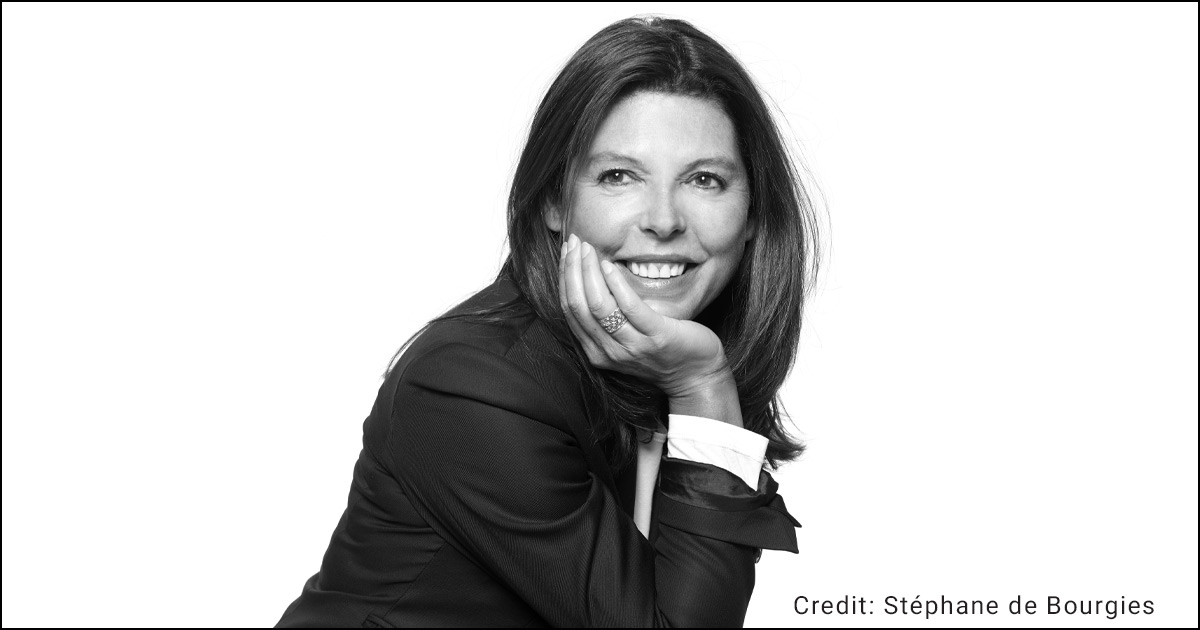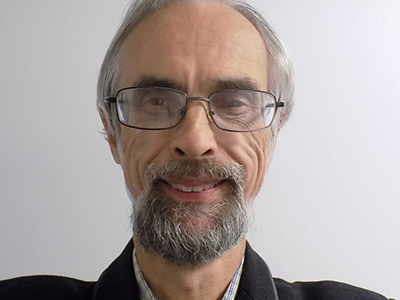Hortense le Gentil Is a World-Class Coach Who Helps Leaders Become More Empathetic
Hortense le Gentil combines her personal experiences with the stories of business leaders, pop culture icons, and her own clients to show leaders of all types of organizations how to escape their "mindtraps" of old thinking that are holding back their companies and employees.

Hortense le Gentil Shows Leaders How to Challenge Their Mindtraps to Become Human Leaders
Most entrepreneurs may not know who Hortense le Gentil is, but they do know those recommending her new book, “The Unlocked Leader,” to CEOs from startups to the Global 1000. They include Ralph Lauren, Arianna Huffington, Michelle Gass (president of Levi Strauss & Co.), Hubert Joly (former CEO of Best Buy), and Bill George (the former Medtronic CEO and executive fellow at the Harvard Business School who wrote the 2022 bestseller “True North: Leading Authentically in Today's Workplace.”
You might think you've read enough on its themes already: being better connected to others in your organization, becoming more of a human leader for all rather than a superstar, and the need to find tools to escape old ways of thinking about leadership.
But “The Unlocked Leader: Dare to Free Your Own Voice, Lead With Empathy, and Shine Your Light in the World” shows how to free yourself from what is holding you back. She goes beyond generalities by citing many specific cases from the world of business, including her clients and CEOs she knows well, such as Joly, Alan Mulally (the former leader of Ford), and Satya Nadella (CEO of Microsoft).
"The fear of being something other than a superhero leader is a global problem," le Gentil told Startup Savant. "Too many are brilliant at leading with their heads but fall short leading with their hearts and souls while struggling to keep up their responsibilities. Meantime, the disconnection between leaders and employees manifests in an epidemic of disengagement, with 75% of workers believing their companies do not care about their well-being."
These types of challenges at large companies provide opportunities for startups and small-to-medium businesses, which are still at the stage when they really know the needs of their customers and employees.
Le Gentil reports on studies that reveal that, as leaders develop their focus on goals, the brain network that helps achieve these grows stronger, while the part that connects with others' emotions gets weaker. Their minds begin to fear feeling their own strong emotions, the chaos that may arise from distraction beyond getting work done, and making changes that might increase the chance of failure, all of which make rebalancing their thinking a major challenge.
She quotes executive coach Marshall Goldsmith about the "20 bad habits of leaders," which include the need to show others how smart they are, not listening, blaming everyone else for problems, and the drive to win at all costs.
Hortense candidly recounts the business lessons she learned throughout her professional career and the personal stresses she faced along the way.
Mindtraps Start Early
"Mindtraps are mindsets and beliefs that once served us well," she explained. "Many of these start early in life and lead to burnout, unhappiness, and depression." She cites organizational psychologist Tasha Eurich, who did surveys that found that 95% of people who believed they were at least somewhat or very self-aware were often deluded. "Many mindtraps can be a reaction to psychological traumas that trigger intense fear, shame, pain, a feeling of powerlessness, or grief that destroys your sense of safety and overwhelm your nervous system."
With 11 million pieces of information coming into our brains every second, human thinking has always had to be able to pick just 40 that it seemed would help protect us from threats. The results of this filter gets arranged into part of a meaningful story, scientists report.
"Using just our rational mind alone doesn't enable us to only think our way out of the resulting mindtraps," she said. "Many leaders are shocked when they received 360-degree feedback, both by the positive and the negative viewpoints. Often, it takes a crisis to wake them up to their behaviors that are counterproductive to being effective leaders."
Perhaps surprisingly, one can get insights about how our subconscious gets programmed in the earliest years from Getting the Love You Want by Harville Hendrix and Helen Hunt (Oprah Winfrey's favorite relationship experts). A woman may marry someone who is an alcoholic largely and unconsciously to "fix" him because her father was one, they wrote. Likewise, we may believe our anger at an employee or the way we treat a vendor is justified because we are not truly aware of the roots of our behavior. Le Gentil calls these "the long shadow of trauma."
Building Your New Mind for Greater Success
Fortunately, she has a lot of good news about ways to reprogram the subconscious and develop good habits and positive perspectives, some of them well-known but under-practiced because the rational mind tells us they aren't vital.
Create a Mastermind Alliance
She cites Napoleon Hill, the author of classics about how to be successful, on the value of surrounding yourself with a variety of volunteer advisors who can give you their perspective on how to deal with challenges and opportunities.
Engage a Consultant
Get a recommendation from colleagues for a consultant who can address the challenges you face as a business owner, an executive in a large organization, or a nonprofit leader. They are well worth paying to be sure you are being told the truth by your associates.
Read, Listen, Watch
Listen to podcasts on a wide variety of topics, or carry a book with you everywhere so you can learn as often as possible. Go to movies or plays or watch TV series on any screen when you have time. All of these things will help you realize what you don't know.
Visualize the Future You
"To create a vision of the fuller vision of yourself in general--and as a more human leader in particular—you need to visualize what that looks, sounds, and feels like because what we imagine, we can become," le Gentil wrote. "This exercise is particularly helpful when you feel stuck, unable to see past your current circumstances." You can maximize this evolution by repeating positive affirmations to reprogram your subconscious as if you were already fully practicing this enlightened state.
Listen More, Talk Less
Highly educated and ultra-smart people often think they know what is best and there is little need to carefully listen to those who are less talented. But without input from others, how can you know what you might be missing or build empathy with your associates that will help you communicate with them?
Write What You Are Grateful For and what You Would Want in Your Eulogy, or Rewrite Your Story
Writing down your self-assessment, what others have told you about your talents and poor habits, and acknowledging your blessings can be a major step in taking a new path. Asking colleagues, friends, and family for input will inevitably produce surprises, so you can then write a new future career story.
Meditate, Consciously Breathe, or Practice Asana Yoga
Going into a state of deep relaxation causes the brain to generate alpha waves that calm the mind and boost creativity.
"Addressing today's challenges, from economic crisis and social fractures to health and environmental threats, requires a different kind of leadership—what the World Economic Forum labels governance 4.0," le Gentil wrote. "It is what separates yesterday's leaders from those who can successfully navigate today's and tomorrow's challenges. This is how human leaders shine their light in the world: by changing the way they connect themselves and other people, they start a chain reaction of interconnected networks of human relationships."
About the Author

Scott S. Smith has had over 2,000 articles and interviews published in nearly 200 media, including Los Angeles Magazine, American Airlines’ American Way, and Investor’s Business Daily. His interview subjects have included Bill Gates, Richard Branson, Meg Whitman, Reed Hastings, Howard Schultz, Larry Ellison, Kathy Ireland, and Quincy Jones.
Startup Resources
- Learn more about Startups
- Visit the TRUiC Business Name Generator
- Check out the TRUiC Logo Maker
- Read our Business Formation Services Review
- Find Startup Ideas
- Explore Business Resources
Form Your Startup
Ready to formally establish your startup? Click below to read our review of the best business formation services!
Best Business Formation Services